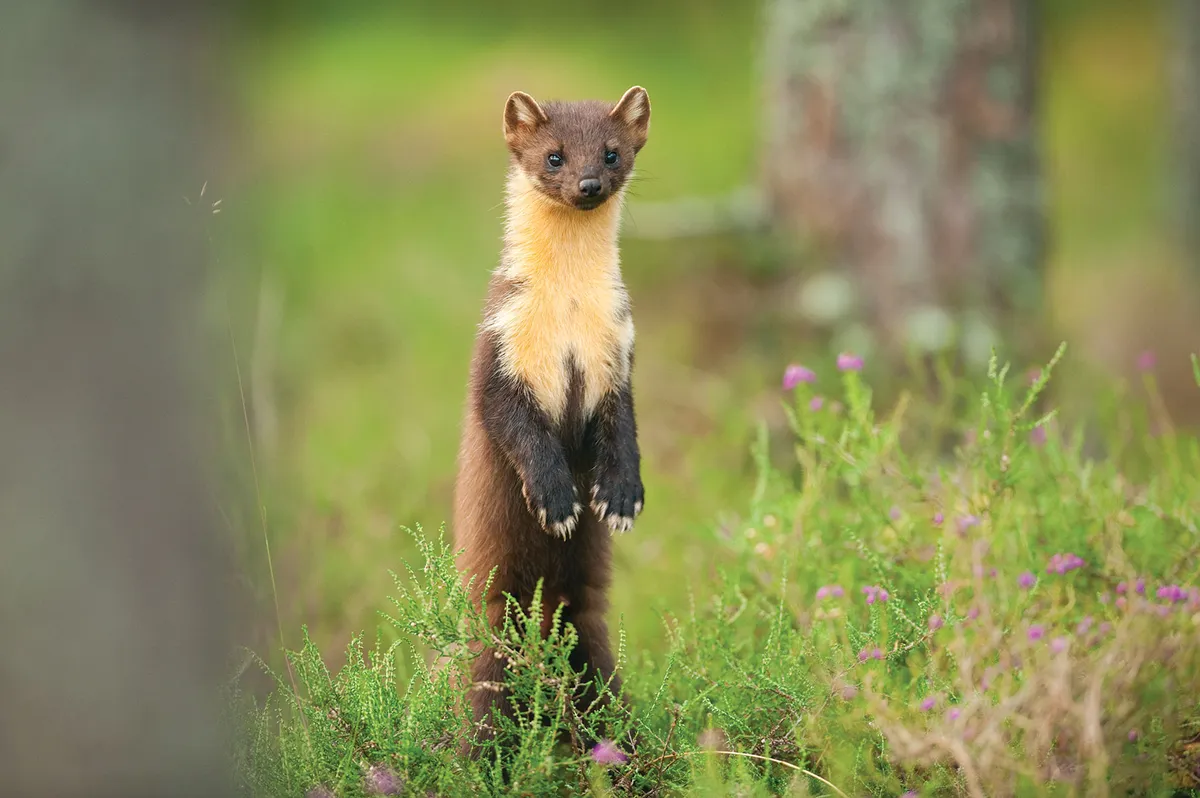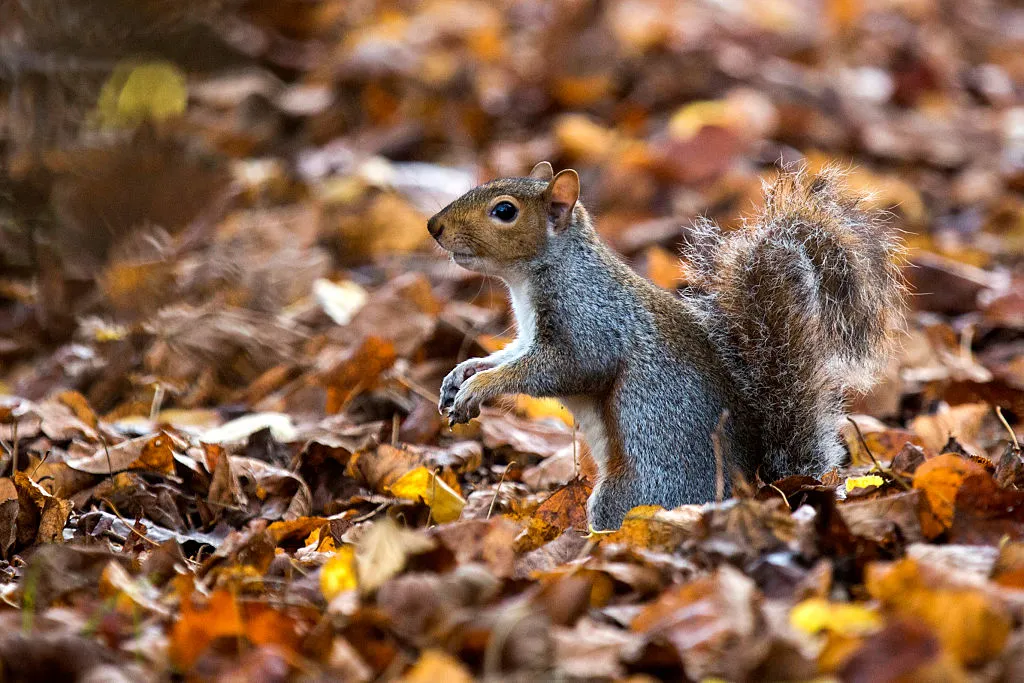Thanks to conservation efforts, pine marten populations have been recovering across parts of the UK and Ireland, with an increase in their numbers going hand-in-hand with the recovery of red squirrel populations, while grey squirrel populations see a decline.
This is due to the pine martens’ apparent preference for predating on grey squirrels, which makes up a larger part of the animal’s diet when compared to the native red.
Researchers from Queen’s University Belfast were keen to shed light on just why this is the case. What makes non-native grey squirrels more appealing to pine martens than native reds?

During the study, red and grey squirrels were exposed to pine marten scent at 20 feeding sites across Northern Ireland.
The red squirrels showed clear behavioural responses when encountering the scent, visiting the feeding sites less often and becoming more vigilant. In direct contrast to this, grey squirrels did not change their behaviour when coming into contact with the scent, therefore leaving them much more vulnerable to predation from pine martens.
Researchers concluded that the native red squirrel has developed this behaviour as a result of sharing a landscape with the pine marten over a long period of time. The non-native grey squirrel is, by comparison, a relative newcomer that doesn’t share an evolutionary history with the pine marten, and so lacks the appropriate behavioural response that would help it to survive.

Joshua Twining, PhD student at Queen’s University Belfast and the study’s lead-author, explains, “Grey squirrels, introduced to the UK from North America, have only shared the landscape for a mere blink of the eye on an evolutionary timescale, and thus currently appear to be naïve to the threat of predation by this native predator.”
This conclusion lends support to the argument that native predators can play an important role in restoring balance to ecosystems, providing a natural, and potentially less expensive, alternative to current measures that are in place to manage invasive species.
“In a modern world that is daunted by environmental crisis and ecological collapse, it is more important than ever to recognise the potential of nature, its resilience and ability to provide solutions to our mistakes,” added Mr Twining. “This is especially pertinent in the UK and Ireland where we currently live in a highly managed, unnaturally predator free world.”
The paper’s researchers believe that their study provides tangible support to the idea that native predators play a crucial role in restoring natural balance to ecosystems.
“The benefits of native predator populations are slowly being realised in Britain and Ireland,” said Dr David Tosh, the paper’s co-author and Research Coordinator at National Museums NI.
“While this study began with a focus on identifying what was behind the observed relationship between squirrels and pine martens, it has shown us the potential benefits predators may have in rebalancing the ecosystem. We believe this discovery will demonstrate to the wider public the benefits that native predators can bring to our countryside.”
